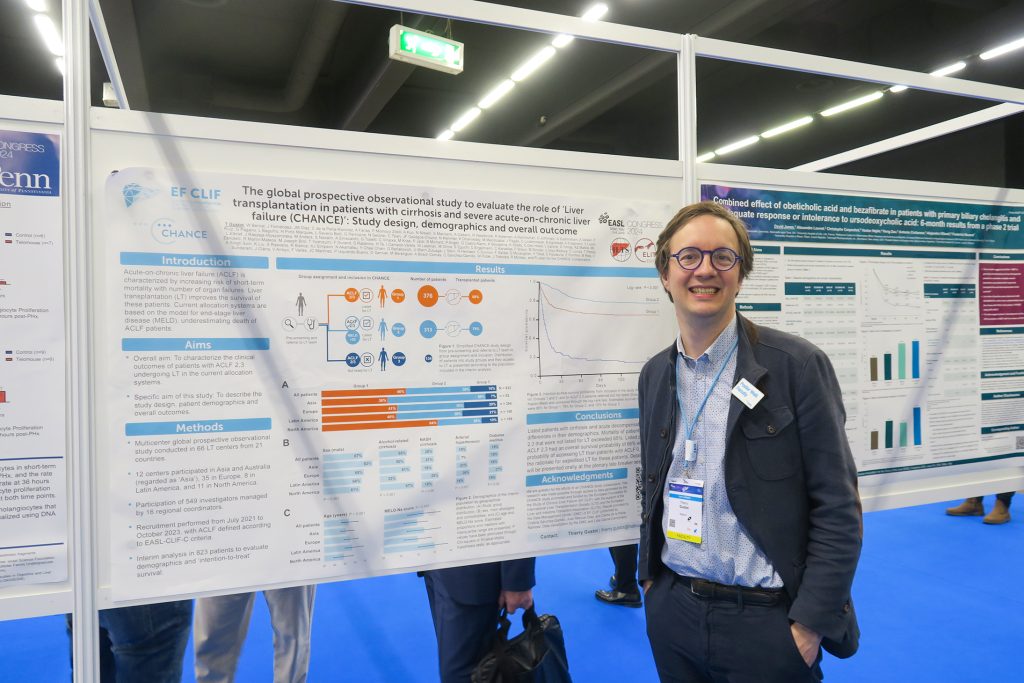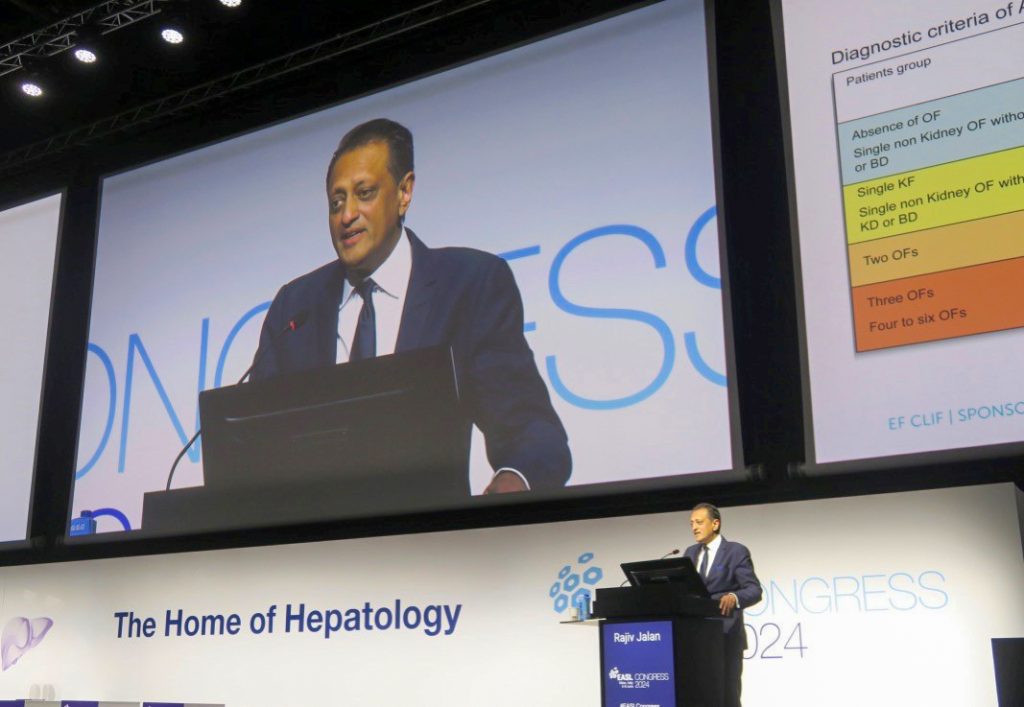Menu
This year at the EASL Congress, two presentations showed interim results from the CHANCE study shedding light on the urgent need for changes in liver allocation systems for patients with severe ACLF worldwide. Findings highlighted the consequences of current policies and the potential benefits of liver transplantation for these patients.
Principal Investigator of this global observational study, Thierry Gustot (CUB–Hôpital Erasme, Belgium), showed that patients with severe ACLF face a 60% mortality rate within 28 days upon admission to hospital. The interim analysis involved 823 patients from 66 liver transplant centers across Asia, Europe, Latin America, and North America. The mortality rate within three months post-liver transplant varied significantly across regions, with the lowest being in North America (3%) and the highest in Latin America (16%). A clear trend was observed showing increased 3-month post-liver transplant mortality with the number of organ failures.
Gustot’s poster presentation emphasized the urgent need for prospective data to evaluate the outcomes of patients with ACLF-2 and -3 post-liver transplantation and called for a detailed look into regional disparities in post-liver transplant survival rates.


Rajiv Jalan at EASL Congress 2024. Picture: © William Bernal.
In his late-breaker oral presentation, Scientific Coordinator of the CHANCE study, Rajiv Jalan (University College London, Royal Free Hospital, UK), addressed the critical limitations of current graft allocation systems, which primarily rely on the MELD-Na score. Among the 823 patients studied, those with severe ACLF had a significantly higher rate of delisting/death (28%) compared to those with lower ACLF grades and high MELD-Na scores (16%). The study found significant regional differences in waiting list mortality, with the highest rates in Latin America (40%) and the lowest in Asia (13%) – the later likely due to the exponential rise in numbers of living-donor liver transplant programs as an alternative to the traditional deceased liver transplantation to overcome organ shortage in a population with a high demand for liver transplantation.
The results from the CHANCE interim analysis, presented by Gustot and Jalan, demonstrate that current allocation policies are inadequate. These findings strongly argue for increasing access to liver transplantation and changing organ allocation systems to prioritize liver transplants for patients with severe ACLF.
Jalan also participated in an insightful episode of EASL Studio. The session focused on landmark studies presented at EASL Congress 2024, where he highlighted the interim results from the CHANCE study. Discussions revolved around a harmonizing definition of decompensation, complications of advanced chronic liver disease, and transplantation.
The CHANCE study is sponsored by the European Foundation for the Study of Chronic Liver Failure, and counts with the support of the International Liver Transplant Society (ILTS) and the European Society for Organ Transplantation (ESOT).
European Foundation for the Study of
Chronic Liver Failure
Avinguda Diagonal 477, 11th floor
08036 Barcelona, Spain
Tel: +34 93 227 14 00
Email: Send us an email
© 2025 European Foundation for the Study of Chronic Liver Failure

| Cookie | Duration | Description |
|---|---|---|
| cookielawinfo-checkbox-analytics | 11 months | This cookie is set by GDPR Cookie Consent plugin. The cookie is used to store the user consent for the cookies in the category "Analytics". |
| cookielawinfo-checkbox-functional | 11 months | The cookie is set by GDPR cookie consent to record the user consent for the cookies in the category "Functional". |
| cookielawinfo-checkbox-necessary | 11 months | This cookie is set by GDPR Cookie Consent plugin. The cookies is used to store the user consent for the cookies in the category "Necessary". |
| cookielawinfo-checkbox-others | 11 months | This cookie is set by GDPR Cookie Consent plugin. The cookie is used to store the user consent for the cookies in the category "Other. |
| cookielawinfo-checkbox-performance | 11 months | This cookie is set by GDPR Cookie Consent plugin. The cookie is used to store the user consent for the cookies in the category "Performance". |
| viewed_cookie_policy | 11 months | The cookie is set by the GDPR Cookie Consent plugin and is used to store whether or not user has consented to the use of cookies. It does not store any personal data. |